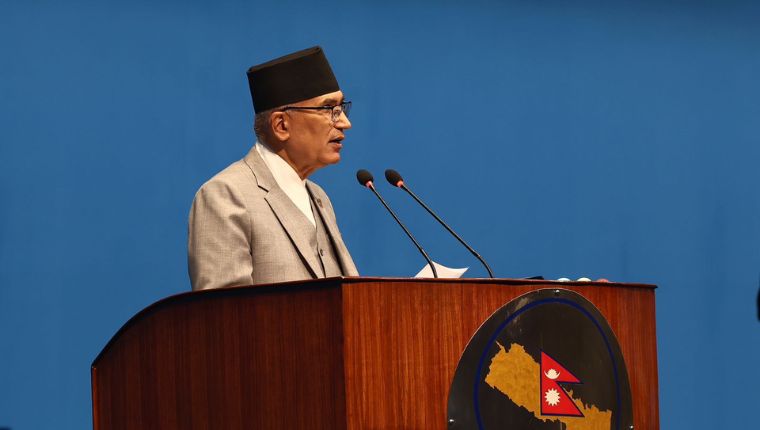Kathmandu: The government has announced a budget of Rs 1.964 trillion for the fiscal year 2082/83. Deputy Prime Minister and Finance Minister Bishnu Prasad Paudel presented the revenue and expenditure estimates during a joint session of the federal parliament on Thursday.
The budget outlines a range of policy reforms, economic reliefs, and infrastructure priorities, while also aiming to tighten fiscal discipline. It does not include a salary hike for government employees, but the monthly inflation allowance has been increased to Rs 5,000.
In a significant policy shift, the government raised the minimum age to receive elderly allowance from 68 to 70 years, citing the need to control the growing social security burden.
Taxes on electric vehicles remain unchanged, signaling continued support for green mobility. However, excise duties on alcohol, cigarettes, and tobacco will rise. Government employees and officials will also be barred from going on foreign visits using funds from public institutions.
To promote digital transformation and innovation, the government has removed the tax on digital transactions and reduced related fees. IT-based industries and hospitality businesses will enjoy income tax and electricity tariff exemptions.
Startups with an annual turnover of up to Rs 100 million will be granted a five-year income tax exemption. Additionally, startup entrepreneurs will have access to loans at a concessional 3% interest rate.
The budget gives top priority to infrastructure. Large highway projects have been emphasized, and the government aims to complete the Terai–Madhesh Expressway by 2084. A feasibility study will be conducted for introducing a podway system as an alternative to the proposed Kathmandu–Hetauda ropeway.
Key provisions in the health sector include the expansion of specialized treatment services in all provinces and the establishment of burn units in at least one hospital per province. The health insurance program will now include all social security programs, and the government will clear pending insurance dues.
In education, the Secondary Education Examination (SEE) will be decentralized and conducted at the provincial level. Scholarships in medical education have been announced for marginalized Musahar, Dom, and Chamar communities. A new umbrella law will be introduced for higher education reform, and foreign students will receive free visas.
To support women and green energy, the government has made business registration in women’s names free and has offered customs duty exemptions on equipment needed for green hydrogen industries.
Other notable announcements include:
- Only 5% income tax for Nepali residents offering services abroad
- Interest and penalties waived for industries in financial trouble
- Mandatory annual KYC (Know Your Customer) update
- Students allowed to work 20 hours a week
- Ban on the production of plastic thinner than 40 microns from Mangsir 1 (mid-November)
- Expansion of consumer courts to all provinces
- Addition of 942 MW electricity to the national grid within a year
- Electricity tariffs to vary based on time of use
The government’s budget signals a shift toward long-term planning, economic discipline, and targeted support, while also addressing social inclusion and sustainability.
